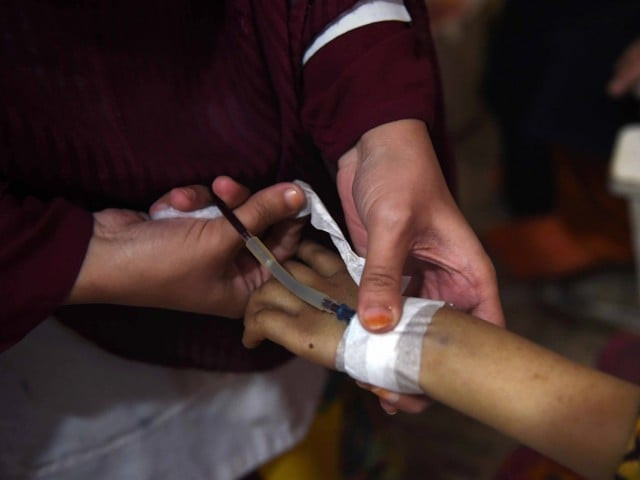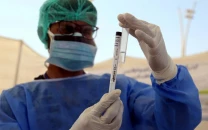Khyber-Pakhtunkhwa's fight against thalassemia
Cultural barriers a hurdle for K-P government in having law passed to make blood screening before marriage mandatory

Thalasseamia is a hereditary blood disorder that prevents the production of haemoglobin, leaving the patient anaemic. PHOTO: AFP
Tanzila, 15, and Shukria, 12, with AB+ and B+ blood groups respectively were diagnosed with thalassemia.
Fortunately, the blood groups of both girls are common and easily available. The blood is usually provided by the HMC administration.
“Sometimes it becomes really difficult but I have to take care of them. I want them to live and will do whatever it takes to make that happen," said the resolute father.
Creating awareness: World Thalassemia Day today
Health experts say that even if there is no law in place, parents must have their blood screened and those who already have a child with thalassemia must undergo haemoglobin electrophoresis tests (screening to detect different types of haemoglobin).
The Khyber-Pakhtunkhwa (K-P) government, which runs an integrated programme for thalassemia, HIV and hepatitis, offers free blood screening. It is also trying to have a law passed to make it mandatory for couples to have their blood screened for abnormal genes before they marry.
The hurdles faced by the government in tabling the bill before the provincial legislature are cultural barriers.
The tests are carried out between the 11th and the 41st week of pregnancy and babies (if found positive for major thalassemia) can be aborted. Health experts say that abortion during the specified time is permissible in Islam and there is a decree supporting it.
Early Detection: Thalassemia law to screen carriers
"We are making every effort to curb the disease," said K-P Health Minister Shahram Khan Tarakai.
“As there is no cure for the disease, we need to focus more on prevention and soon awareness centres will be set up at all divisional headquarters,” he added.
Dr Shah Taj, who heads the HMC pathology department, said there was no actual data about patients with thalassemia but around 6,000 carriers of the abnormal genes are discovered every year
"Around 946 thalassemia patients are registered with the facility - 13 per cent of them from Afghanistan," he added.
thalassemia is a hereditary blood disorder that prevents the production of haemoglobin, leaving the patient anaemic.



















COMMENTS
Comments are moderated and generally will be posted if they are on-topic and not abusive.
For more information, please see our Comments FAQ